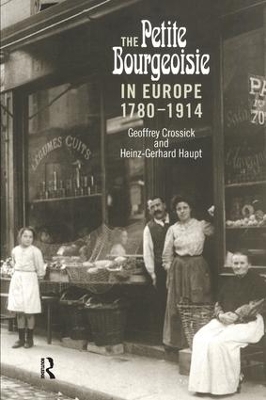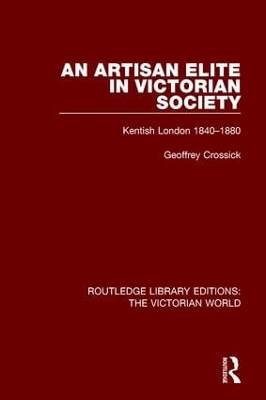Routledge Library Editions: The Victorian World
2 total works
The Petite Bourgeoisie in Europe 1780-1914
by Geoffrey Crossick and Heinz-Gerhard Haupt
Crossick and Haupt provide a major overview of the social, economic, cultural and political development of the petite bourgeoisie in modern Europe, a group until now largely neglected by European social historians.
Through comparative analysis the authors examine issues such as the centrality of small enterprise to industrial change, the importance of family and locality to the petit-bourgeois world, the search for stability and status and the associated political move to the right.
Crossick and Haupt have written an invaluable and authoritative assessment of the emergence of a distinctive petit-bourgeois cultural and political identity. It will be of interest to both undergraduate students and academic historians.
First published in 1978. Mid-Victorian Britain was relatively stable in comparison with the turbulent period that preceded it, and that stability is in part explained by the emergence of an artisan elite with a specific relationship to the society around it. This book examines that elite: its clubs and societies, co-operatives and building societies; its values and ideology, challenging the notion that these artisans directly absorbed middle-class values; its politics, tracing the evolution from Chartism through the Reform League and on to a radical liberalism which existed in constant tension with the local liberal middle class.
A careful reconstruction of the social, political and industrial life of these artisans is set within the context of the local communities, and their understanding of the mid-Victorian society in which they lived is seen as the explanation for their values and activities. This title makes a major contribution towards our understanding of the nineteenth-century working class.

